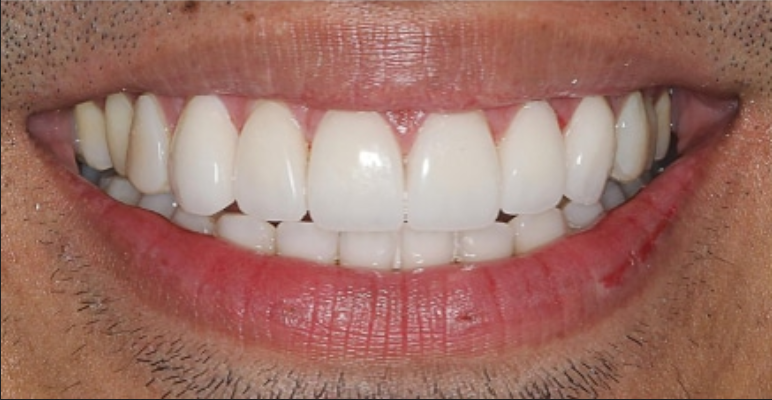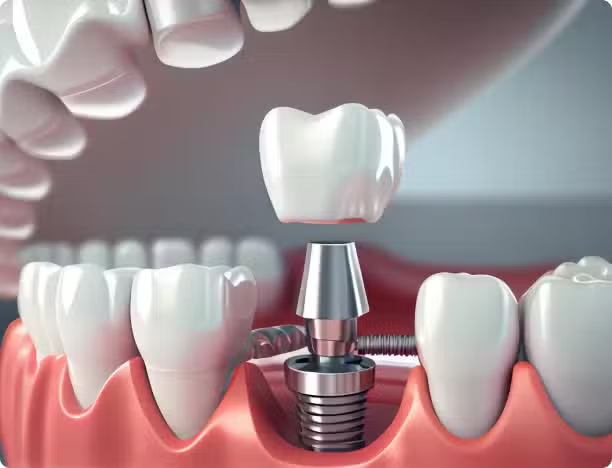Dental Implants in West Chester, PA
Dental Implants
- Replace Missing Teeth
- Single Tooth Replacements
- Full Mouth Replacements
- Denture Stabilization
- Regaining the Ability to Chew Again
- Restoring your Confidence

Dental Implants Results
At YTS Dental Care, we specialize in dental implant restorations, offering expert care to ensure your implants look and function their best. While we do not surgically place dental implants, our team is highly skilled in restoring and maintaining them to support your oral health and confidence.




Use Cases For Teeth Replacements
Full mouth replacement
Full mouth replacement is a transformative dental treatment designed to replace all teeth in both jaws using advanced options such as same-day implants, bridges, or dentures. This comprehensive process involves careful evaluation, meticulous planning, and collaboration among dental specialists to ensure optimal results. Our titanium dental implants, known for their biocompatibility, integrate seamlessly with the jawbone to provide unmatched stability and longevity. Maintaining good oral hygiene and scheduling regular checkups are essential for ensuring that your full mouth replacement lasts a lifetime, offering both functionality and a confident smile.
Routine Maintenance and Checkups
Keeping your implant-supported restorations in top shape is vital. Regular maintenance can prevent further complications.
Repair or Replacement of Crowns and Bridges
If your dental implant crown or bridge is damaged, loose, or discolored, we’re here to help. Our team specializes in restoring these essential components, ensuring they blend seamlessly with your natural teeth. We use high-quality materials and expert techniques to bring back the full function and aesthetics of your smile.
Adjustments for Comfort and Functionality
If your restoration doesn’t feel right or is causing discomfort, we’ll make precise adjustments to improve its fit and function.
Dental Implants at YTs Dental Care
We’ll tell you everything you need to know about traditional and mini implants. These implants look and function as if they’re your original teeth, and prevent bone loss commonly associated with missing teeth. Because your jaw is an integral part of your face structure, preserving its original shape will keep your appearance youthful. If the jaw recedes, the skin around your mouth will sag and appear shrunken.
What are Dental Implants?

Dental implants serve as the foundation for crowns, bridges, and dentures, offering a durable and natural-looking solution for replacing missing teeth. Made of titanium, these metal cylinders act as artificial tooth roots, integrating seamlessly with the jawbone to provide stability and functionality. Whether replacing a single tooth, multiple teeth, or anchoring a full set of dentures, implants restore the ability to bite, chew, speak, and smile with confidence.
The process involves a pain-free surgical procedure performed by our skilled dental professionals. After placement, the implants undergo a healing period, during which the surrounding bone and tissues naturally integrate with the implant, creating a secure and permanent base. Once healed, the restoration phase begins, where a custom crown, bridge, or denture is attached, completing your beautiful, functional smile. Dental implants are an investment in long-term oral health and renewed confidence.
Traditional versus Mini Dental Implants
Traditional dental implants are designed to replace missing tooth roots and integrate seamlessly with your jawbone. They replicate the function and appearance of natural teeth, offering a stable and permanent solution that doesn’t shift or move like dentures or bridges. With the ability to replace one tooth, several teeth, or an entire set, implants provide versatility and long-term reliability, boasting a success rate of 95% or higher based on decades of clinical experience.
These implants are not limited by age but require sufficient jawbone density and good overall health for optimal results. Trusted by hundreds of thousands of patients, traditional implants are a proven investment in restoring your smile’s functionality and aesthetics.
Our Highly Trained Dentists
Dental implants are artificial tooth roots made of biocompatible materials, such as titanium, that are surgically placed into the jawbone. They provide a stable foundation for replacement teeth.
With proper care, dental implants can last a lifetime. They are designed to be a permanent tooth replacement solution.
Lorem ipsum dolor sit amet, consectetur adipisicing elit. Optio, neque qui velit. Magni dolorum quidem ipsam eligendi, totam, facilis laudantium cum accusamus ullam voluptatibus commodi numquam, error, est. Ea, consequatur.
Dental implants are designed to closely mimic natural teeth. They are custom-made to match your surrounding teeth in terms of color, shape, and size, making them virtually indistinguishable.
While most people can be candidates for dental implants, a thorough evaluation by a dental professional is necessary. Factors like oral health, bone density, and overall health will determine if you are a suitable candidate.
The dental implant process can vary depending on factors such as the number of implants, the need for additional procedures (like bone grafting), and the individual’s healing process. On average, the entire process may take several months from start to finish.
Dental implants offer several advantages over dentures. They are more stable, comfortable, and durable. Implants also stimulate the jawbone, preventing bone loss, and provide a natural look and feel.
Dental implants require regular oral hygiene practices, including brushing, flossing, and regular dental check-ups. Proper oral care ensures the longevity and health of the implants.
Dental implant coverage varies depending on the insurance plan. While some insurance plans may cover a portion of the cost, others may not cover them at all. It’s best to check with your insurance provider for specific coverage details.
Dental implant surgery is generally safe, but as with any surgical procedure, there are potential risks such as infection, implant failure, nerve damage, or sinus problems. However, these complications are rare, and proper planning and care minimize the risks.
Say Goodbye to Tooth Loss With Implant Dentistry


